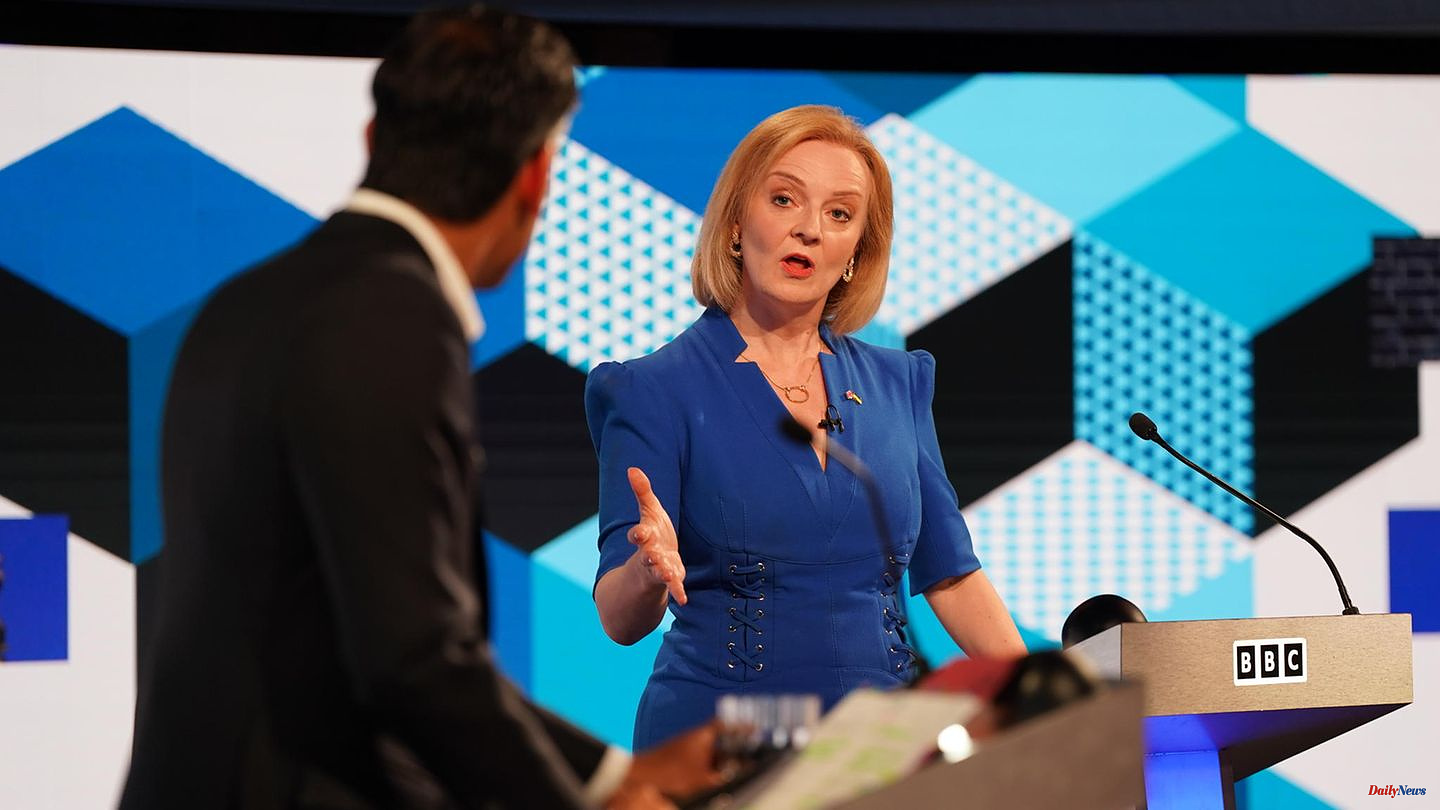In the race to succeed British Prime Minister Boris Johnson, the two candidates Liz Truss and Rishi Sunak exchanged blows in their first TV duel. Topics of the debate between the foreign minister and the former finance minister, moderated by the BBC on Monday evening, included tax policy, dealing with China and Brexit.
Sunak criticized Truss' plans for rapid tax cuts. "I don't think that's right, I don't think that's responsible and it's certainly not conservative," said the Tory politician. Tax cuts before inflation is brought under control would be like a "short-term sugar rush".
Truss, speaking at the debate in the town of Stoke-on-Trent, countered that Sunak's plans would plunge Britain into a "recession". She wants to act immediately because people are struggling to make ends meet. Her rival in the race for Tory party leadership raised taxes to “the highest rate in 70 years” as finance minister.
In the first of three TV duels, Truss also accused Sunak of having taken too soft a course towards China in the past. A month ago he spoke out in favor of "closer trade relations with China". The 46-year-old foreign minister commented on the fact that Sunak spoke out in favor of a tough course on Beijing at the weekend: "I am delighted that you have now agreed with my way of thinking."
42-year-old Sunak countered that Truss had also made a shift with regard to China. She too has wanted closer relations with Beijing in the past.
The MPs of the conservative Tory party had selected Sunak and Truss for the runoff for the office of party leader and thus also the head of government. All party members can now vote in the runoff. The result is to be announced on September 5th. Opinion polls have so far given Truss a clear lead to Sunak.
Johnson was forced to resign as party leader on July 7 by an internal party revolt against his much-criticized leadership, which also meant the end of his government office. However, he intends to remain prime minister until his successor is appointed.












